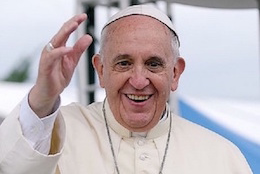"Smart" sanctions "catastrophic" say aid agencies
Human rights groups and aid agencies have condemned the UN's modified sanctions on Iran describing the new so-called "smart" sanctions targeting military and dual-use equipment only, as catastrophic and morally indefensible.
A coalition of independent organisations ranging from CAFOD and Christian AID to Save the Children, Human Rights Watch and the anti-sanctions campaign organisation Voices in the wilderness UK, insisted more was needed if the humanitarian crisis in Iraq was to be eased. They argue that without access to foreign investment and exchange the country will still be incapable of hauling itself back from the brink to rebuild its infrastructure and kick start its economy.
The UN security council last week voted unanimously to lift the blanket ban on goods going into Iraq which had been in force since the end of the Gulf War, 11 years ago. Only materials which could be put to military use or so-called "dual-use" goods will remain on the prohibited list.
The British and US governments hailed the move as one which would allow Iraq to meet all of its civilians need without impediment but insisted that some sanctions were still required to prevent Iraqi President Saddam Hussein from developing chemical, biological and nuclear weapons.
Aid agencies and human rights organisations who have worked extensively in Iraq over the past decade strongly disagree. They contend that the longterm embargo on goods up to this point has played a major role in creating and perpetuating the current crisis in Iraq and slammed the latest resolution as failing the people of Iraq in that it does not give them any real economic power.
"The humanitarian crisis in Iraq cannot be solved simply by increasing the quantities of goods going in," said a spokesperson for Voices in the Wilderness. "Reconstructing the public health infrastructure and restoring families' purchasing power; real incomes, needs more than food and medicine."
The new sanctions will still prohibit foreign investment, foreign loans, access to foreign markets for Iraqi goods other than oil, or direct access to foreign exchange. And there is concern that the list of goods on the banned "dual-use" list may include materials vital to the maintenance of hospitals, water supplies and food.
Goods which will be allowed back into the country under the new resolution will include personal computers, tractors, x-ray equipment for airports and hospitals, irrigation, sewerage and water filtration systems, and cars for personal use.
According to the British and US governments sanctions cannot be lifted completely until UN weapons inspectors are allowed back into Iraq and declare the country clean of weapons of mass destruction.
At the end of May UN secretary-general Kofi Annan hopes to meet an Iraqi delegation for further negotiations on allowing weapons inspectors back into the country.


















